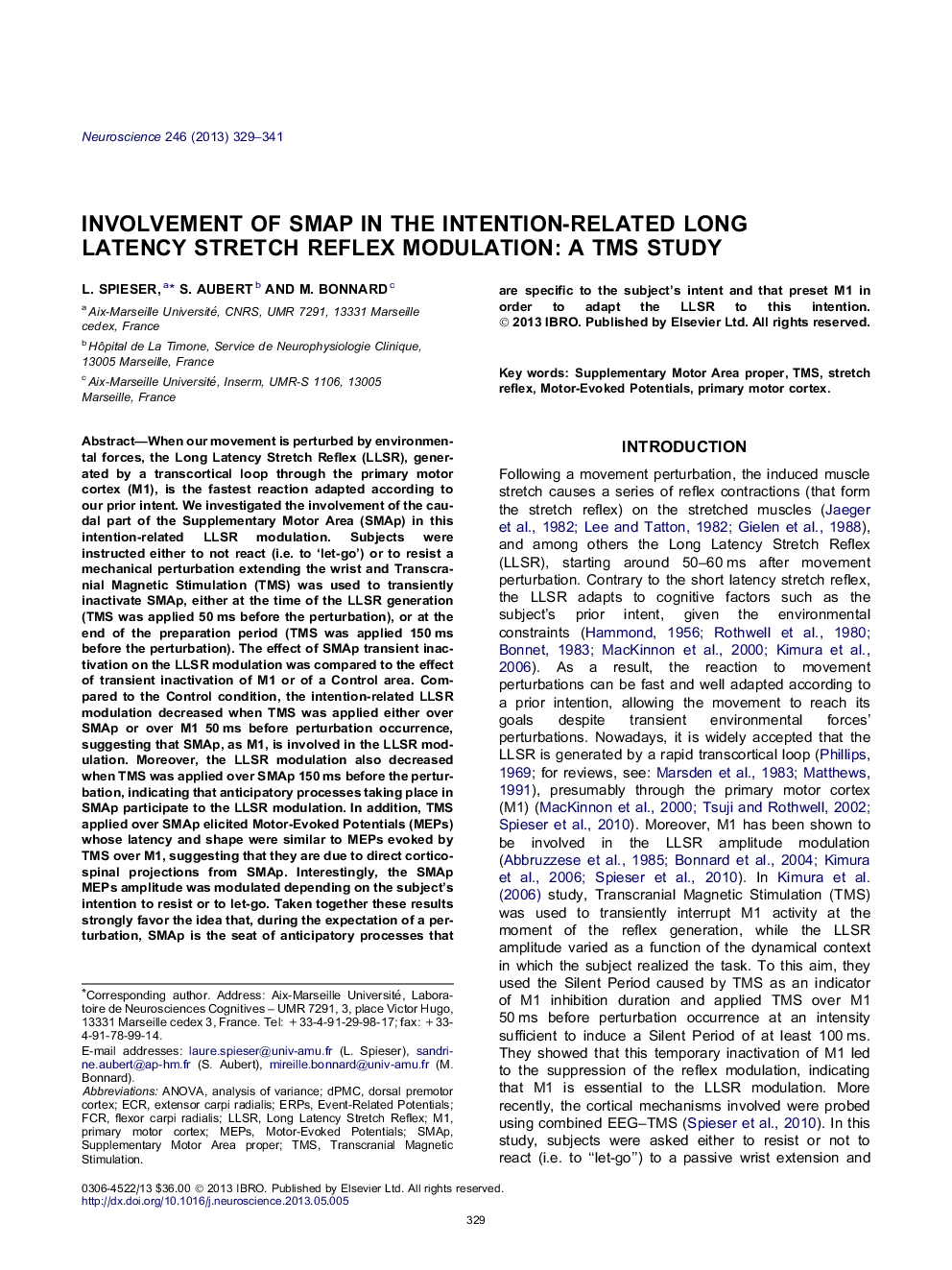| Article ID | Journal | Published Year | Pages | File Type |
|---|---|---|---|---|
| 6274597 | Neuroscience | 2013 | 13 Pages |
Abstract
When our movement is perturbed by environmental forces, the Long Latency Stretch Reflex (LLSR), generated by a transcortical loop through the primary motor cortex (M1), is the fastest reaction adapted according to our prior intent. We investigated the involvement of the caudal part of the Supplementary Motor Area (SMAp) in this intention-related LLSR modulation. Subjects were instructed either to not react (i.e. to 'let-go') or to resist a mechanical perturbation extending the wrist and Transcranial Magnetic Stimulation (TMS) was used to transiently inactivate SMAp, either at the time of the LLSR generation (TMS was applied 50Â ms before the perturbation), or at the end of the preparation period (TMS was applied 150Â ms before the perturbation). The effect of SMAp transient inactivation on the LLSR modulation was compared to the effect of transient inactivation of M1 or of a Control area. Compared to the Control condition, the intention-related LLSR modulation decreased when TMS was applied either over SMAp or over M1 50Â ms before perturbation occurrence, suggesting that SMAp, as M1, is involved in the LLSR modulation. Moreover, the LLSR modulation also decreased when TMS was applied over SMAp 150Â ms before the perturbation, indicating that anticipatory processes taking place in SMAp participate to the LLSR modulation. In addition, TMS applied over SMAp elicited Motor-Evoked Potentials (MEPs) whose latency and shape were similar to MEPs evoked by TMS over M1, suggesting that they are due to direct corticospinal projections from SMAp. Interestingly, the SMAp MEPs amplitude was modulated depending on the subject's intention to resist or to let-go. Taken together these results strongly favor the idea that, during the expectation of a perturbation, SMAp is the seat of anticipatory processes that are specific to the subject's intent and that preset M1 in order to adapt the LLSR to this intention.
Keywords
Related Topics
Life Sciences
Neuroscience
Neuroscience (General)
Authors
L. Spieser, S. Aubert, M. Bonnard,
